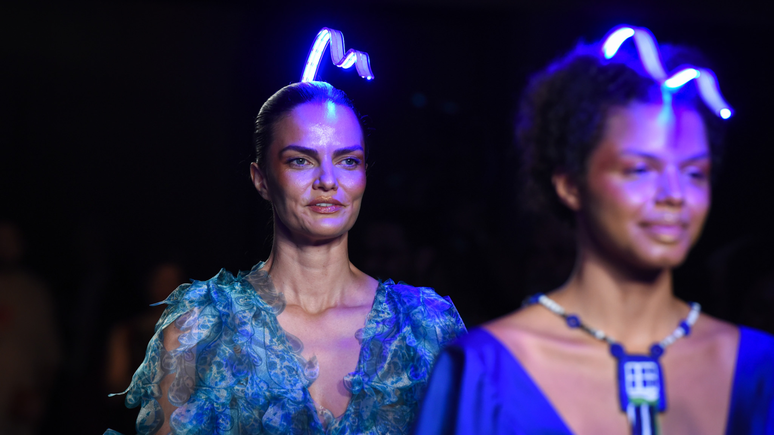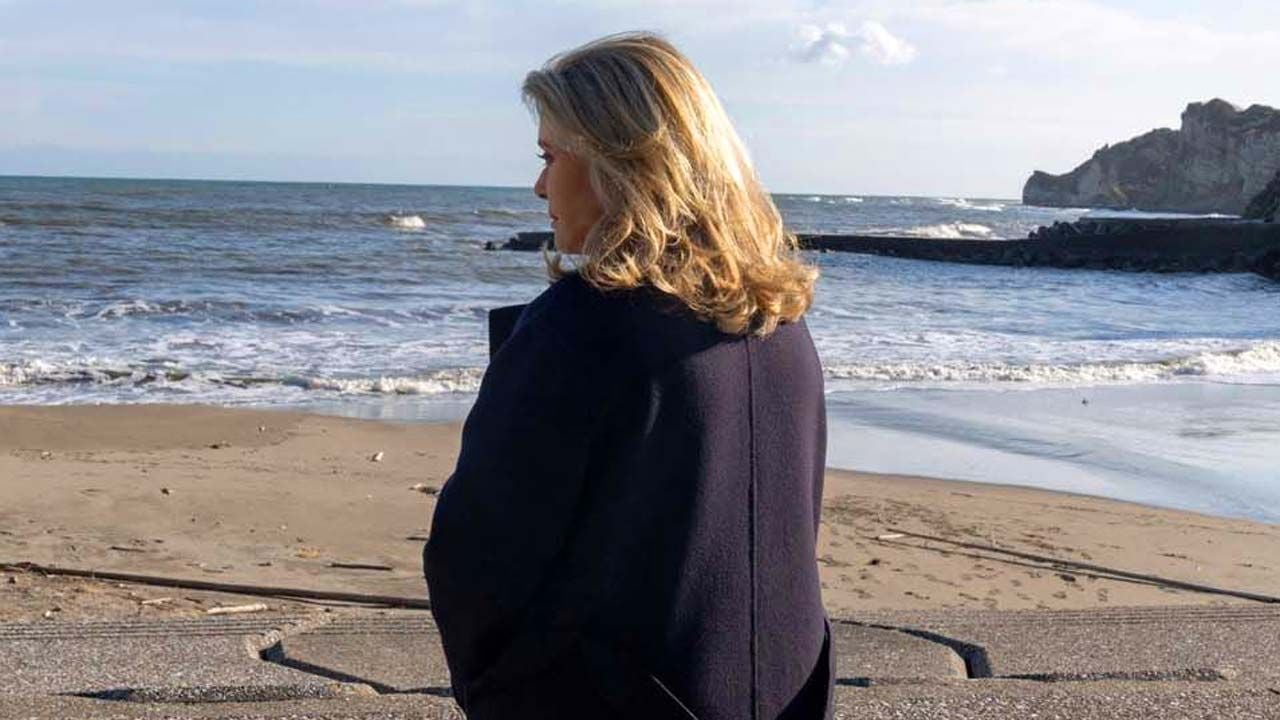As conspiracy theories about viruses and vaccines have grown, one group has gone even further into denialism.
“I’ve been interested in alternative health for many, many years,” says Veronica Haupt, from her beach house near Cape Town, South Africa. “And then, of course, what happened with the coronavirus really sparked another level of interest.” In me.”
Veronica didn’t want to share a photo of herself. She is a naturopath, someone who offers “natural” health advice that may not be based on scientific evidence.
And your path in this segment is common. She initially became interested in wellness and enjoyed reading about unconventional health treatments. Then she began to distrust the components of Covid-19 vaccines – and the fact that they are mandatory in some workplaces.
But this is where his path diverged from that of many in this “wellness” community.
“I think the idea that infectious diseases can be contracted from someone else is an absolute myth that has been perpetuated for many, many decades in humanity,” Veronica says.
She, like a growing group of people on the Internet, and despite all the scientific evidence, does not believe that disease-causing germs exist.
An analysis of social media data using keywords used by germ deniers suggests the conversation barely existed before 2020 and grew with the onset of the Covid-19 pandemic.
But it didn’t end here. It continued to grow, with the highest number of relevant keyword mentions in 2023, higher than any of the three years prior to the height of the pandemic.
On Facebook and Telegram, groups dedicated to germ denial have tens of thousands of members. Some members do not believe in the existence of viruses, while others believe that germs exist but do not cause disease.
Many refer to a discredited 19th century theory.
Just as the theory that germs cause disease was being proven, a French scientist named Antoine Bechamp came up with an idea called the terrain theory. He argued that germs were harmless things that turned into something that caused disease within an unhealthy body.
Bechamp’s theory collapsed as more and more evidence of the existence of pathogenic germs emerged. Now some groups have caught on to Bechamp’s idea.
This seems to have less to do with a sudden commitment to the theory of a 19th-century French scientist and more to do with a total rejection of anything conventional – the growing belief that if a government or health institution says something, it must automatically be wrong.
This is not the same as questioning governments and analyzing all available evidence.
Dan Wilson, a molecular biologist with an educational YouTube channel that seeks to debunk this denialism, says these unscientific beliefs fit into a broader idea of ”wellbeing.”
It is the pursuit of an overall feeling of physical and psychological well-being through diet, exercise, and other health practices. It often involves the refusal of drugs, considered “unnatural”. This topic generates millions of posts on social media.
Wilson states that well-being fosters explanations about illness that give individuals a sense of control. Just change what you consume, the movement claims, and you can not only avoid all diseases but also live the best life possible.
“You don’t have to go so far as to deny germ theory. But just the idea that you can take supplements a certain way or live a certain lifestyle and not have to worry about getting sick,” Wilson says.
Of course, not all diseases are caused by germs: they can be caused by genetics, lifestyle and the environment.
But Veronica believes, without any concrete evidence, that all diseases are caused by something toxic entering our bodies: pollution, or perhaps electromagnetic frequencies.

And he tells his clients, “Your health is in your hands, not your doctor’s.”
This is where germ denial can have real consequences.
The largest Facebook group dedicated to the belief that germs don’t cause disease is full of advice and instructions on how to avoid doctors, drugs and vaccines.
It has grown from 150 members in 2019 to more than 30,000 today.
“Germ theory denial and anti-vaccine crowds definitely have a lot of overlap. I would argue that the germ theory denialist circle exists within the anti-vaccine circle,” Wilson says.
He noted how this has morphed from something he saw every now and then to something that is increasingly becoming a feature of anti-vaccine arguments.
“I call them the flat-Earth biology advocates because, like the flat-Earth advocates, we can show pictures of the round Earth and people will still deny it,” Wilson says.
“We can take the virus and infect an animal with it, making it sick. We can also find the same genetic sequence in humans and trace it through a population as it’s transferred from person to person and watch a wave of disease pass through it.” population.”
Viruses and other germs can be seen under a microscope, he adds.
“But despite this wealth of evidence, different forms of germ denial theory are gaining traction. For example, they support the idea that HIV does not cause AIDS. I am worried that this will become yet another mainstream conspiracy theory.”
In the early 2000s, in Veronica’s home country of South Africa, then-president Thabo Mbeki refused to accept that AIDS was caused by the HIV virus. He was also reluctant to provide life-saving antiretroviral drugs that stop the virus from replicating in the body.
This position is estimated to have caused more than 300,000 preventable deaths, according to a Harvard University study.
People working on HIV prevention and treatment in South Africa say the current situation is unrecognizable from 20 years ago and stress that AIDS denial is not a big problem they face today.
But just silent questions about the topic on the Internet are enough to worry HIV research scientists, like Roberto Pereira, who works on HIV prevention in South Africa.
“I don’t think it’s right (to raise these questions), especially when it comes to something that has caused so much pain to this country. It makes me really uncomfortable,” Pereira says.
“You don’t want to see history repeat itself, but it seems like history repeats itself quite often.”
Source: Terra
Ben Stock is a lifestyle journalist and author at Gossipify. He writes about topics such as health, wellness, travel, food and home decor. He provides practical advice and inspiration to improve well-being, keeps readers up to date with latest lifestyle news and trends, known for his engaging writing style, in-depth analysis and unique perspectives.




![Tomorrow belongs to us: What awaits you on October 14, 2025, Tuesday, October 14 [SPOILERS] Tomorrow belongs to us: What awaits you on October 14, 2025, Tuesday, October 14 [SPOILERS]](https://fr.web.img4.acsta.net/img/3a/6b/3a6b6c830f9faa61c326457b86fe9dcd.jpg)

